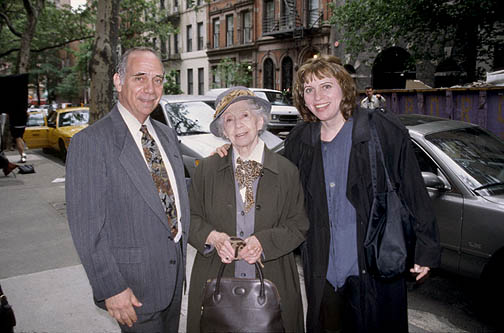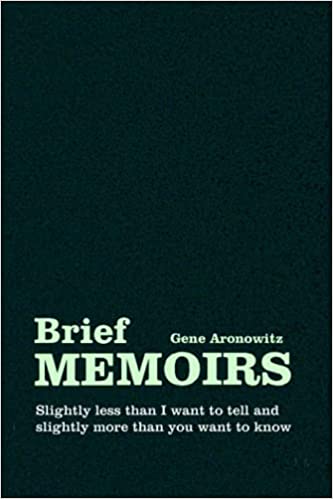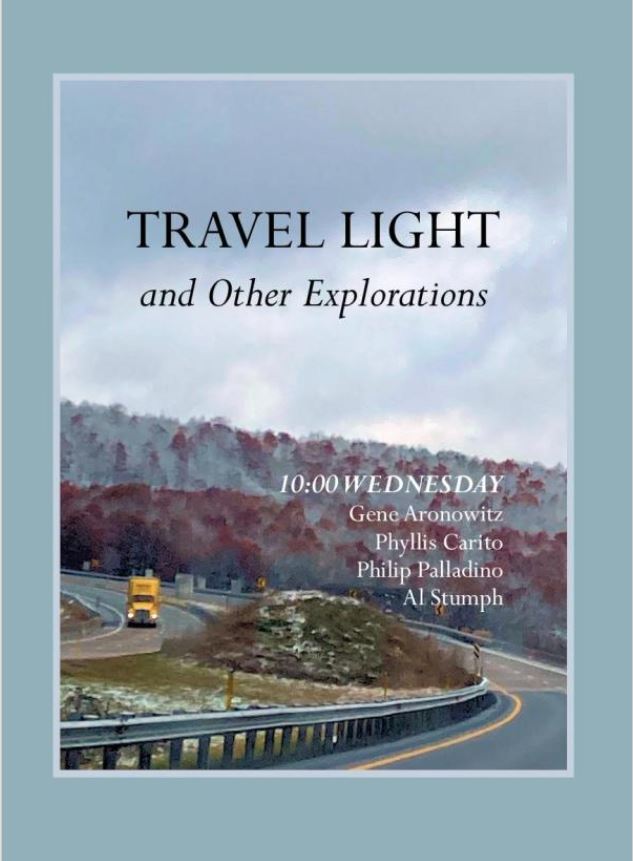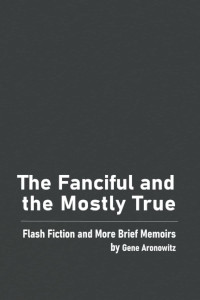Journeys to Germany
By Gene Aronowitz
In a Gestapo-inflected tone of voice, he hollered, "You vill pay!"
My wife Linda and I had booked a room in East Berlin in 1999. The small hotel had been converted from a large residence, and to make bathrooms for each guest, they had to raise the floor in part of each room to accommodate the necessary plumbing. Linda had been washing up in our bathroom after I went to sleep. She didn't want to wake me by turning on the lights, so the only illumination in the room came from the street. Linda forgot that the bathroom floor was higher than the bedroom and tripped, grabbed the door of a flimsy wardrobe in the bedroom to stop her descent, and pulled it off. Fortunately for me, she and the door fell on her side of the bed.
In the morning, we told the hotel manager about her experience. Knowing that some Americans can get litigious over such events, we tried to assure him that we were not planning any legal action. He didn't understand and, his voice, harsh and accusatory, he demanded that we pay to get the wardrobe fixed. Since the door was not broken but needed only to be reattached, we reluctantly said we would cover the cost.
This event occurred 54 years after World War II when I was only a child. But books and movies and museum exhibitions about Nazi atrocities, seemingly tolerated by most of the German public, were never far from my Jewish eyes and ears. I didn't like the manager's attitude, and I didn't like his voice. I was concerned about what other experiences we might expect on this, our first trip to Germany.
We had come in part to attend The Berlin International Film Festival, where our friends, Joan Grossman and Paul Rosdy, had been invited to show their award-winning film, The Port of Last Resort. This film told the story of the 20,000 European Jews who fled to Shanghai, China, between 1938 and 1941 to evade Nazi persecution. As a Jew, the subject matter was very personal, and I wanted to discover what the local German reaction to it might be. Linda, who is not Jewish, was interested but more focused on being there to support her friend.
After seeing the film and hanging around with Joan, Paul, and other movie personnel, we left Berlin to spend some time in Lemgo, Germany. Linda's maternal grandparents had emigrated from there, and Linda knew that many relatives were still in the area. The family of Gunter Strohmeier, Linda's cousin, had invited us to be their guests during our stay in Lemgo.
When we arrived at a nearby train station, we were shocked but delighted to see waiting for us, by the side of the tracks, eight relatives arranged almost in a triangle like bowling pins. Each morning, we joined them for traditional German breakfasts of hearty bread, rolls, butter, jams, and abundant choices of sliced meats and cheeses. I had studied German in college, but that was over 40 years earlier. Yet, table conversation was somewhat familiar because all four of my grandparents usually conversed in Yiddish, a closely related language. Gunter and his son spoke a little English, but the rest spoke only German.
During our stay, we were guided, with typical German efficiency, to see the sights of the community. Lemgo was glorious. During World War II, the then Mayor Wilheim Gräfer appealed secretly to the American forces to avoid bombing his beautiful city because it contained buildings dating back to medieval times. German authorities arrested the mayor, accused him of betrayal, and executed him. But the Allied forces were sympathetic, and when we toured the city, Lemgo looked much as it had centuries before.
Gunter escorted us to the homes of local relatives he had contacted in advance. They all expressed much love for Linda and always provided coffee and cake. My favorite was Schwarzwälder Kirschtorte, or Black Forest Cake, composed of rich chocolate layers with fresh cherries, cherry liqueur, and whipped cream frosting.
There were other relatives whom Gunter had not contacted, but at Linda's urging, he walked right up to their houses and insistently knocked on their doors. I would never do such a thing, but Gunter was different. He was a Jehovah's Witness and had learned to expunge such hesitancy. He introduced himself to those he did not know and told them who we were. Everyone was welcoming and hospitable and offered us whatever food and drink were available.
I assumed everyone knew that Linda had married a Jew – information like that goes around pretty quickly. But I noticed neither animosity nor disrespect, which is not surprising, for I knew that Jehovah’s Witnesses were themselves victims of the Holocaust.
A frequent presence during our stay was Ruth Lommas, a first cousin of Linda's mother. She told us that her daughter, Petra, lived in Berlin and gave us her contact information. When we were ready to leave, she hugged Linda and said, with noticeably moist eyes, " Bitte umarme Petra für mich," Please hug Petra for me.
We contacted Petra when we arrived back in Berlin, met her a day later, and as we fulfilled her mother's wish, she began to cry. Jehovah's Witness elders had shunned her, what they call disfellowship, for not following their norms and requirements, which are very explicit and demanding. "They called me in three times," she said, "and told me what would happen if I didn't change my ways. But I didn't want their kind of life. " Excluded from the community, she missed her mother and sister terribly but, otherwise, had no regrets.
Our trip lasted seven days, and a few days after we left, Gunter ran into Connie Strohmeier, another of Linda's cousins, and told her of our visit. She was disappointed that she had not seen us and, in a letter, invited us to stay at her place whenever we returned to Germany, which turned out to be four years later, in 2003. As we prepared for that trip, we asked how to recognize her when we arrived at their train station. "Just look for a man with one leg," she said, referring to her partner, Hans Wolf. When she asked how they would recognize us, we recalled a photograph, taken two years before, which we thought would be perfect and wrote that we would send it to her.
Our filmmaker friend, Joan Grossman, had earlier asked Linda and me to be extras in a German film, part of which she was producing in New York City. Die Liebenden von Alexander Platz starred Inge Meysel, who graciously posed for a photo with Linda and me, and that's the one we sent to Connie and Hans. I wrote that it was as good a picture of us as we had and asked them to just disregard the old lady in the middle. Of course, Connie immediately recognized "the old lady" as the then most famous actress in Germany and wrote, "Do you have any idea who that woman is, any idea at all?" I don't think I responded to the question until we spotted Hans, with one leg, standing on crutches, waving at us when we arrived at the train station.

The breakfast spreads prepared by Connie's daughter, Sarah, rivaled those produced by Gunter's family during our 1999 trip. There were fewer people at the table but much more food.
Gunter arranged for a family gathering at a local restaurant in our honor. About 40 relatives showed up for a splendid evening. I took photographs of each family group, and, in the process, we learned a little about their lives and they, ours. Almost everyone said they were honored by our visit. Some of them had come to the United States in the 1960s, but Linda was one of the only U.S. relatives to travel to Germany, which meant a lot to them.
World War II had ended almost 60 years before, so the oldest people there that night were only children during that period, and none, as far as I could tell, were sympathetic to Nazi beliefs. During our stay, we had breakfast with Connie's parents. Her father had been in the German Army during World War II, and, as a Jew, I was expecting, at best, a cold, detached tolerance. But he was a sweet, frail old man and treated me and, of course, Linda graciously and with great respect.
The antipathy I harbored from feelings related to the egregious behavior of many Germans in the 1930s and 40s had diminished somewhat because of my contact with Linda's extended family, which could not have been more loving.
A version of this memoir was initially published in Travel Light and Other Explorations


